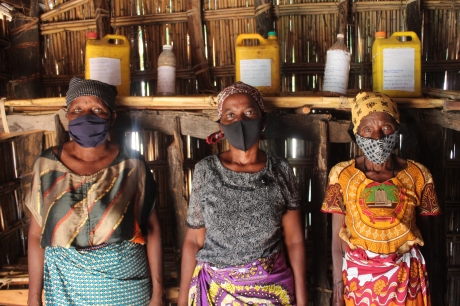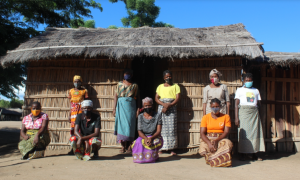“Sometimes we are faced with droughts and other times we have floods,” says Anita António Candeeiro, leader of a women’s group of smallholder farmers in Chemba, Mozambique. Aside from losing food and income sources, these disasters also often wipe out fields, making it necessary for farmers to start from scratch, requiring fresh seeds to begin anew. This basic necessity, and arguably the most important part of farming, isn’t as automatic or readily available as might be assumed.
Seed saving has been the answer for millennia, a practice that farmers and their families have necessarily undertaken. However, it is a skill in its own right, and knowing the proper seed storage methods is vital to ensuring that seed saving is successful. Seed storage was the weak point for Anita’s community.
“We used to put them in the bags, and they would rot,” she explains.
On several occasions, they even had to leave the “field empty” due to lack of seeds, comments Anita.
With funding from the Austrian Development Cooperation and support from FAO, Farmer Field Schools (FFS) assisted communities to change this situation by establishing seed banks and undertaking agricultural conservation techniques. With this acquired knowledge, Anita’s association “Manja Athu” (which means “our hands” in the local language) fittingly put their hands to good use to collect and store seeds that could be used in times of agricultural adversity.
Selecting varieties most suited for a particular area involves time and some trial and error, but with the desire to learn and with technical support, they were able to identify the best varieties to keep at the seed bank.
“We used to struggle looking for seeds, and we couldn’t get them, but now we have saved a stock,” says Anita.
In the community seed banks, these valuable inputs are kept safe from pests and diseases. Farmers can access this stock for the next planting season or as a fallback in times of emergency when their crops have been damaged or destroyed, a situation that is becoming increasingly common due to the impacts of climate change.
In fact, in recent years, Mozambique has been battered by a multitude of natural hazards and disasters like cyclones, floods and droughts, directly impacting livelihoods and reversing hard-won achievements by smallholder farmers.


